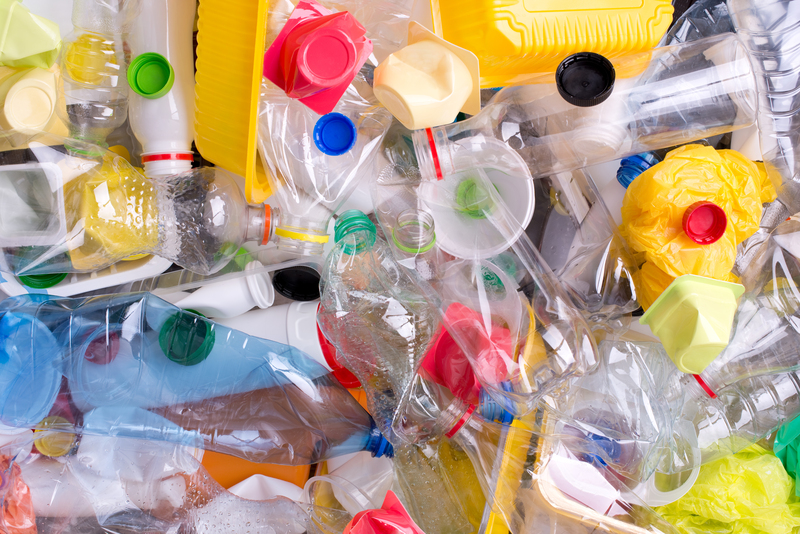
Exploring the Ecological Advantages of Recycling Metals
Recycling metals is an essential practice in today's world, helping reduce waste and conserve natural resources. Beyond these benefits, recycling metals offers numerous ecological advantages that contribute to a healthier planet. In this article, we will delve into the various ecological benefits of metal recycling, highlighting its importance in sustainable resource management.
Understanding Metal Recycling
Metal recycling is the process of reprocessing used metals to create new products. This practice reduces the consumption of raw materials, minimizing the need for mining and decreasing energy usage. Commonly recycled metals include aluminum, copper, steel, and iron. Recycling these metals contributes to sustainable development by conserving nature and reducing harmful emissions.
The Process of Metal Recycling
The metal recycling process consists of several steps:
- Collection: Metals are collected from various sources, including industrial, commercial, and household waste.
- Sorting: The collected metals are sorted based on type and quality to ensure efficient recycling.
- Processing: The sorted metals are shredded and melted in large furnaces, preparing them for reuse.
- Purification: Purified metals are refined and filtered to remove impurities, ensuring high-quality recycled products.
- Solidification: The molten metal is then solidified into sheets, bars, or other forms, ready to be manufactured into new products.
Ecological Benefits of Metal Recycling
Recycling metals presents numerous ecological advantages, contributing to a sustainable environment:
1. **Conservation of Natural Resources**
Metal ores are finite natural resources. By recycling metals, we reduce the need for mining, conserving valuable natural resources for future generations. This process helps preserve biodiversity by minimizing the environmental impact of mining activities.
2. **Energy Conservation**
Recycling metals consumes significantly less energy compared to extracting and processing virgin materials. For instance, recycling aluminum saves up to 95% of the energy required to produce it from raw bauxite ore. This substantial energy saving reduces greenhouse gas emissions, mitigating climate change and promoting sustainable energy consumption.
3. **Reduction of Landfill Waste**
Metal recycling reduces the amount of waste sent to landfills. Metals like aluminum and steel take a long time to degrade, and by recycling them, we free up valuable landfill space and decrease pollution. This reduction contributes to a cleaner environment and healthier ecosystems.
4. **Lowering Greenhouse Gas Emissions**
Reducing energy consumption in metal production through recycling leads to lower carbon emissions. Recycling metals mitigates greenhouse gases responsible for global warming, promoting a more balanced climate system.
5. **Prevention of Pollution**
Mining activities are a significant source of air and water pollution. By recycling metals, we reduce the demand for mining, thereby decreasing pollution levels associated with these processes. This reduction improves air and water quality, safeguarding human health and wildlife habitats.
The Economic Aspect of Metal Recycling
Besides the ecological advantages, metal recycling has significant economic benefits:
1. **Job Creation**
The metal recycling industry generates employment opportunities in various sectors, from collection and transportation to processing and management. This industry supports thousands of jobs worldwide, boosting economic growth and community development.
2. **Cost-Effectiveness**
Recycling metals is often more cost-effective than extracting and processing virgin materials. The reduced energy consumption translates into lower production costs, making recycled metals a more affordable alternative.
Challenges in Metal Recycling
Despite its benefits, metal recycling faces several challenges:
1. **Quality Concerns**
Recycled metals must meet quality standards to ensure they are suitable for manufacturing. Contaminants during the recycling process can affect the quality and usability of recycled metals. This issue emphasizes the need for efficient sorting and purification techniques.
2. **Technological Limitations**
Advanced technologies are required to improve the efficiency of metal recycling. Investment in research and development is crucial to overcome these technological limitations, enhancing the recycling process and maximizing ecological benefits.
Conclusion
Recycling metals presents a myriad of ecological advantages, from conserving natural resources to reducing energy consumption and lowering greenhouse gas emissions. These benefits underscore the importance of metal recycling in fostering a sustainable future. Addressing the challenges faced by the industry through innovation and investment will further enhance these environmental benefits, ensuring a healthier planet for future generations. As individuals, businesses, and governments, supporting metal recycling initiatives can contribute significantly to ecological preservation and sustainable development.
